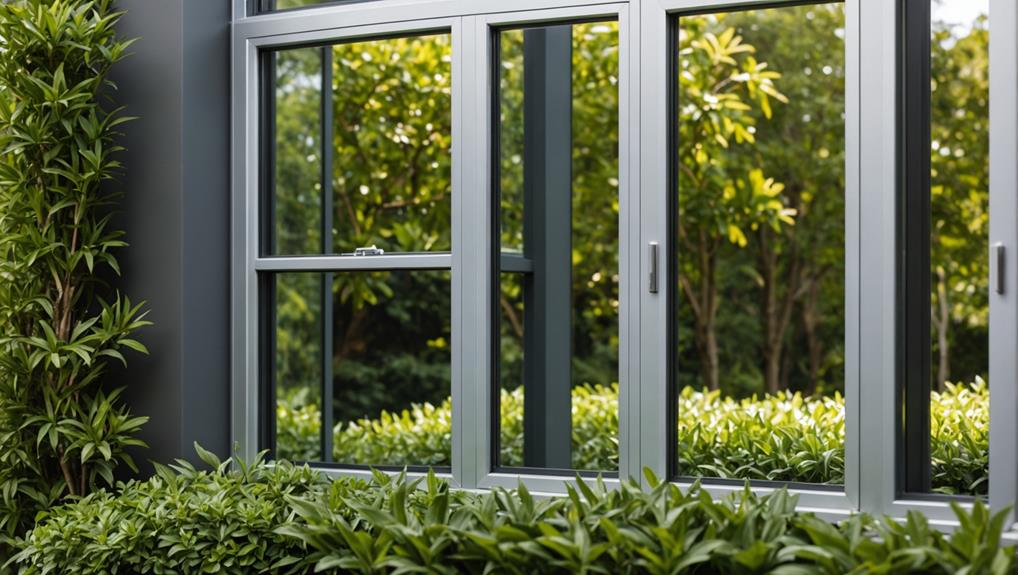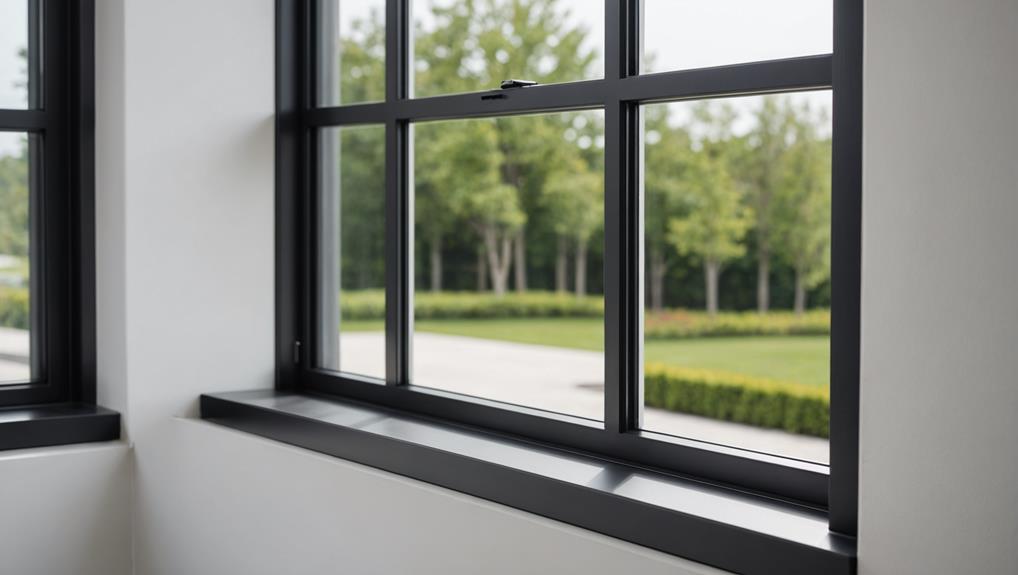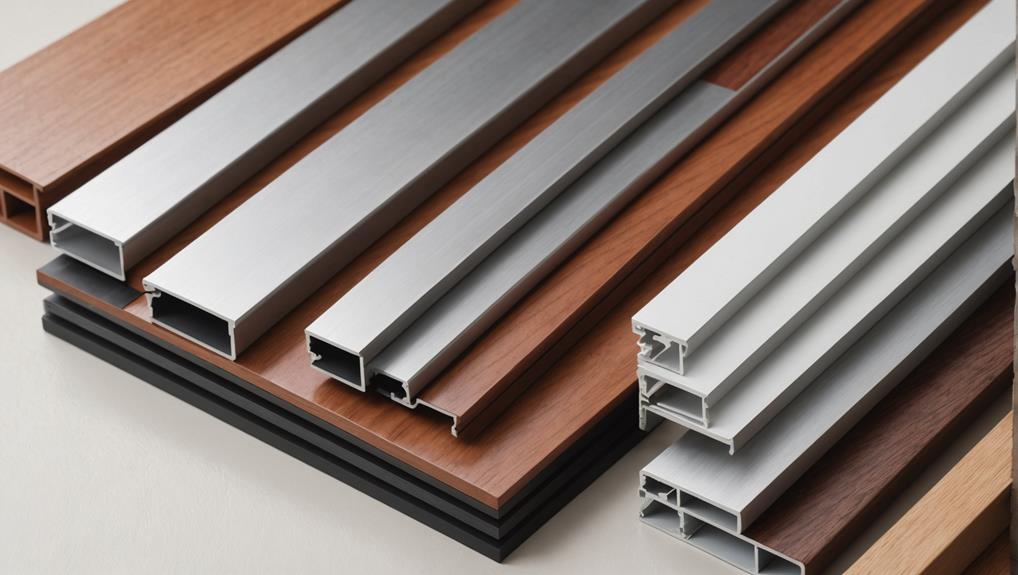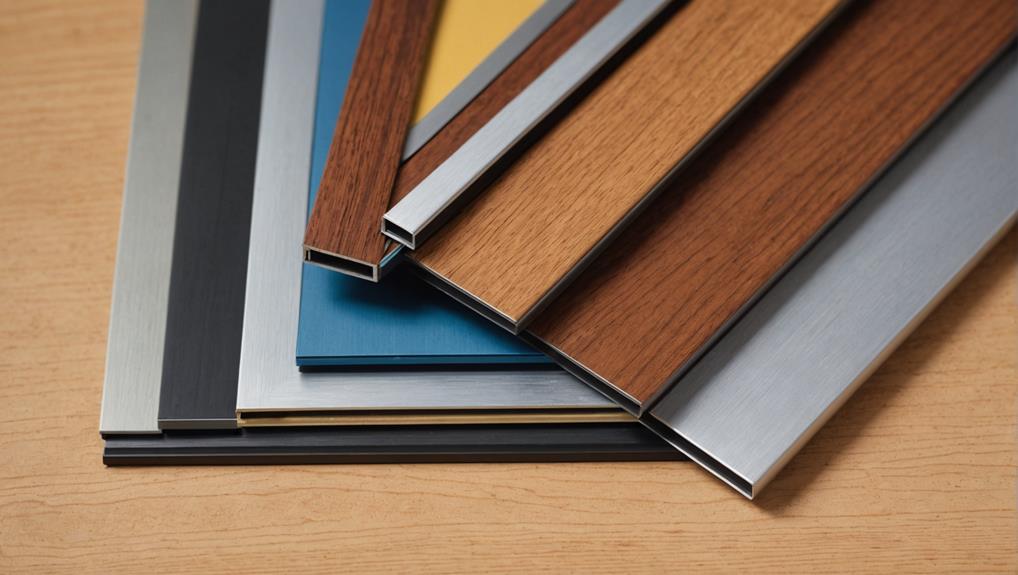Table of Contents
When choosing the best durable window materials, consider vinyl, fiberglass, composite, aluminum, and wood. Vinyl windows are affordable and resistant to moisture, lasting over 20 years with little maintenance. Fiberglass frames offer exceptional durability and can last 35-50 years, making them a smart long-term investment. Composite windows look great and resist warping, lasting 30-50 years. Aluminum is lightweight but less energy-efficient, while wood-clad windows provide aesthetic appeal with durability—yet require regular maintenance. Each option has its benefits, so weigh your priorities wisely. There’s certainly more to explore about these materials.
Key Takeaways
- Fiberglass windows offer exceptional durability with a lifespan of 35-50 years and resistance to extreme temperatures and moisture.
- Composite frames blend durability and aesthetic appeal, lasting 30-50 years with minimal maintenance requirements.
- Vinyl windows are lightweight and long-lasting, exceeding 20 years while being highly resistant to moisture and rot.
- Wood-clad frames provide classic beauty and durability but require regular maintenance to prevent warping and insect damage.
Overview of Window Materials

When choosing window materials, it’s essential to take into account factors like durability, energy efficiency, and maintenance needs. You’ll find various options, each with distinct advantages.
Vinyl windows stand out as the gold standard, offering excellent energy efficiency and low maintenance requirements, lasting over 20 years with proper care.
On the other hand, fiberglass windows provide exceptional durability and thermal performance, making them ideal for extreme climates, though they come with a higher price tag.
If you’re looking for a blend of aesthetics and durability, composite windows might be your best bet. They combine the beauty of wood with the sturdiness of fiberglass, boasting a lifespan of over 35 years.
Aluminum windows are lightweight and budget-friendly but lack energy efficiency due to their high thermal conductivity, making them more suitable for temperate climates.
Vinyl Window Frames
Vinyl window frames are a top choice for homeowners seeking an affordable, low-maintenance option that offers exceptional energy efficiency and durability. Typically priced between $250 and $950, these frames provide excellent insulation, which can save you up to 15% on energy bills. This makes them a smart investment for anyone looking to reduce costs while enhancing their home’s comfort.
One of the standout features of vinyl is its versatility. You can choose from a wide range of styles and colors, allowing for customization that suits your aesthetic preferences without the hassle of painting. Additionally, vinyl window frames are fire-resistant and offer impressive noise-blocking capabilities, which can further enhance your indoor environment.
While it’s true that vinyl frames may not be as strong as metal options and can warp under extreme conditions, their overall durability and performance make them an appealing choice for many homeowners. With a lifespan exceeding 20 years and minimal maintenance requirements, vinyl window frames remain an excellent option for those prioritizing longevity and efficiency in their home.
Aluminum Window Frames

Aluminum window frames offer a lightweight yet sturdy alternative to vinyl, making them a favored choice for modern designs and high-risk weather conditions.
They’re particularly appealing due to their low maintenance and corrosion-resistant properties, which help them withstand harsh coastal climates. If you’re looking for durability, aluminum frames can last between 20 to 25 years, especially when installed and maintained correctly.
However, it’s important to take into account their thermal conductivity. While aluminum is generally more affordable than wood or fiberglass, its insulation properties are poor, leading to significant heat loss and higher energy costs in extreme climates. This can impact your home’s overall energy efficiency, especially if you live in an area with fluctuating temperatures.
To maximize your investment in aluminum windows, make sure you’re aware of their limitations regarding energy efficiency. Though they’re strong and require little upkeep, the potential for increased energy costs due to heat loss could offset any initial savings.
To summarize, aluminum frames are a solid choice if you prioritize durability and low maintenance, but be mindful of their thermal performance in your specific environment.
Wood and Wood-Clad Frames
Wood and wood-clad frames not only enhance your home’s aesthetic appeal but also provide excellent insulation, making them a popular choice for energy efficiency. These materials offer a classic elegance that can elevate any space. However, it’s crucial to reflect on both their benefits and maintenance needs.
Here are three key points to keep in mind:
- Durability and Lifespan: Wood-clad windows can last between 20 to 40 years with proper care, combining the beauty of wood with a more durable exterior that reduces maintenance needs.
- Thermal Performance: Wood offers natural insulation properties, but without proper upkeep, issues like warping can affect its thermal performance and energy efficiency.
- Quality and Aesthetic: Both wood and wood-clad frames are customizable, allowing you to choose colors and grains that fit your home’s style, though they generally come at a higher upfront cost.
Fiberglass Window Frames

Offering an impressive lifespan and minimal maintenance, fiberglass window frames are an excellent choice for homeowners seeking durability and energy efficiency. Known for their long lifespan, these frames can last 35-40 years when properly cared for, making them a smart long-term investment. Their exceptional durability means they resist extreme temperatures, moisture, and UV rays, helping maintain their structural integrity over time.
One of the standout features of fiberglass window frames is their insulation properties. They considerably reduce heating and cooling costs, leading to energy savings of 15% or more on your utility bills. This efficient insulation translates into a more comfortable living environment and lower energy expenses.
While the upfront cost for fiberglass windows ranges from $500 to $1,500, the low maintenance requirements and longevity often justify this initial investment. Unlike traditional materials, fiberglass frames mimic the aesthetic appeal of wood without demanding high upkeep.
If you’re looking for a reliable window option that combines strength, efficiency, and minimal hassle, fiberglass window frames should be at the top of your list.
Composite Window Frames
Composite window frames blend durability and aesthetic appeal, making them a popular choice for homeowners looking for long-lasting performance. These frames combine the strength of fiberglass with the classic aesthetic of wood, allowing you to enjoy the beauty without the drawbacks.
Here are three key benefits of composite window frames:
- Energy Efficiency: Their excellent thermal insulation helps reduce heating and cooling costs, keeping your home comfortable year-round.
- Minimal Maintenance: Unlike traditional wood windows, composite frames resist warping and rotting. This means you won’t spend your weekends worrying about upkeep, allowing you to focus on what truly matters.
- Long Lifespan: With a lifespan of 35-40+ years, investing in composite window frames guarantees you’re making a choice that pays off in durability and performance.
While the average cost ranges from $700 to $1,200, this investment pays dividends in energy efficiency and reduced maintenance. Plus, you can achieve the timeless look of wood with various finishes that maintain the modern advantages of composite materials.
Selecting the Right Material

When selecting the right window material for your home, consider factors like durability, maintenance needs, and energy efficiency to find the best fit for your lifestyle. Each material has its advantages, and understanding them can help you make an informed decision.
Here’s a quick overview of popular window materials:
| Material | Key Features |
|---|---|
| Vinyl Frames | Low-maintenance, 20+ years lifespan |
| Fiberglass Windows | Superior strength, 30+ years lifespan |
| Composite Windows | Aesthetic appeal, 35-40 years lifespan |
| Aluminum Frames | Lightweight, but lower energy efficiency |
| Wood-Clad Windows | Timeless beauty, reduced maintenance |
Vinyl frames are excellent for low-maintenance needs, while fiberglass windows offer superior insulation. If you appreciate aesthetics, composite windows blend durability with style. Aluminum frames are lightweight but may not be suitable for extreme climates due to high thermal conductivity. Wood-clad windows provide a beautiful interior while enhancing longevity with their durable exterior.
Ultimately, weigh each material’s durability, lifespan, and energy efficiency to guarantee your choice aligns with your needs and preferences.


Leave a Reply